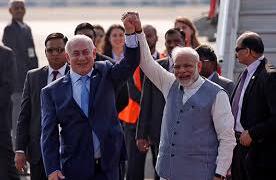According to media reports, China has banned Christmas decorations in the country this year, as a part of President Xi Jinping’s war against religion and foreign culture. The Associated Press (AP) on Monday reported that officials have ordered restrictions on Christmas decoration.
China doesn’t officially mark Christmas as a holiday, while workers are given days off on to celebrate events like Chinese New Year instead. The AP said workers at a 27-story shopping and office complex in Nanyang, a city in southwestern China, dismantled their Christmas trees, lights and bells within 24 hours of government officials telling them to take down the decorations.
China's Christmas crackdown as President Xi pushes for 'tradition' : We celebrate the Chinese New Year so why are the Chinese so scared of Xmas ? pic.twitter.com/DCXa6Xwp3Y
— Mosborough Blade (@JohnBrook51) December 25, 2018
The news agency further added that the government in Hengyang, a city near Nanyang, posted on social media that anyone caught holding Christmas sales or celebrations that blocked streets would be punished. In the meanwhile, Hengyang’s government forbade Communist Party members to celebrate any foreign festivals and become ‘models of adherence to Chinese traditional culture’.
Christmas decorations inside canteen of the People’s Daily headquarters. I wonder if the New York Times has Chinese elements during the Spring Festival in its New York office.@JanePerlez @ChuBailiang pic.twitter.com/sAkCYaZ4LA
— Hu Xijin 胡锡进 (@HuXijin_GT) December 23, 2018
Since Xi Jinping came to power, there were reports of massive political re-education campaign in the far western Chinese province of Xinjiang. The unprecedented crackdown on Uighurs has been one of the key initiatives in that direction. In Xinjiang, Muslim detainees are required to swear allegiance to the Communist Party and foreswearing the Muslim faith that they are told to repeat is “stupid”. The ill-treatment of Uighurs on that mass level has been unprecedented since the cultural revolution of Mao-era which claimed millions of lives. Around a million Uighur Muslims are believed to be held up in the Chinese internment camps. Those who have gone through detention in what the Chinese government calls as “re-education camps” have disclosed that they were subjected to an indoctrination process that lasted for several months. During this, they were forced to renounce Islam, criticizing Islamic beliefs and sing Communist propaganda songs for several hours. They were also force-fed alcohol and pork- which are forbidden among the Muslims.
Insight: Inconsistency in Xi’s Policies towards Uighur Moslemshttps://t.co/RA0JMufdSZ
China successfully created ethnic hatred againts Uyghurs in China, created islamphobia among Chinese . But outside, China supporting Islamic extremists & helping dictators in muslim countries
— Mehmet jan (@Mehmetjan5) December 24, 2018
However, barring few isolated voices, the international community including the media has remained silent. Even the closest Muslim ally of China, Pakistan, has refused to condemn the atrocities against the Uighur Muslims. Pakistan has maintained the stoic silence on the issue. In fact, a Pakistani daily, Pakistan Today, showered appreciation on Chinese Premier Xi-Jinping with respect to his policies in the Xinjiang region. The newspaper report reads, “President Xi Jinping has tackled the threat with a two-pronged strategy i.e. deal with the terrorists with an iron fist while eradicating the source of grievances by bringing prosperity, development and religious freedom to the Uighurs and other minorities.”
It remains to be seen whether the international community will take notice of this latest crackdown on religion, specifically Christianity. Zi Yang, a China expert at the S. Rajaratnam School of International Studies in Singapore, told the AP: “The ongoing local reaction against Christmas is part of the wider sentiment since Xi took power. Therefore, foreign cultural elements such as Christmas are placed on the chopping block,” he said. The silence of the international community on the issue may provide a fertile ground to the rise of another Mao.




























